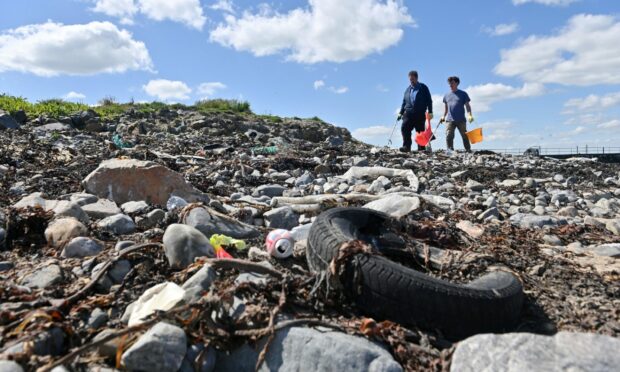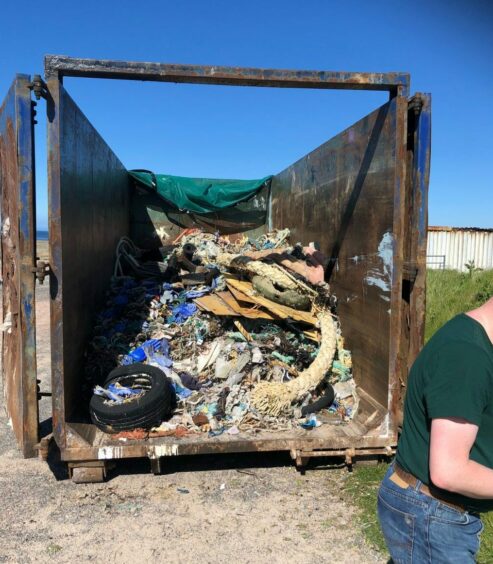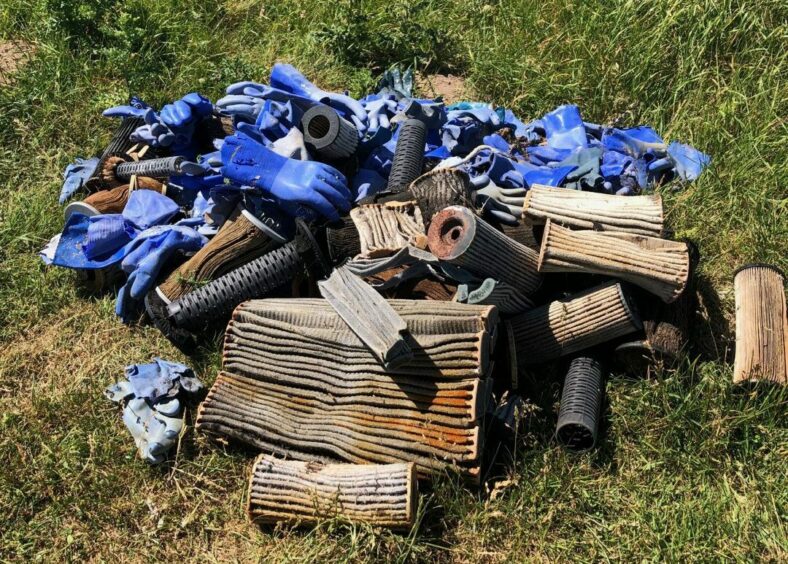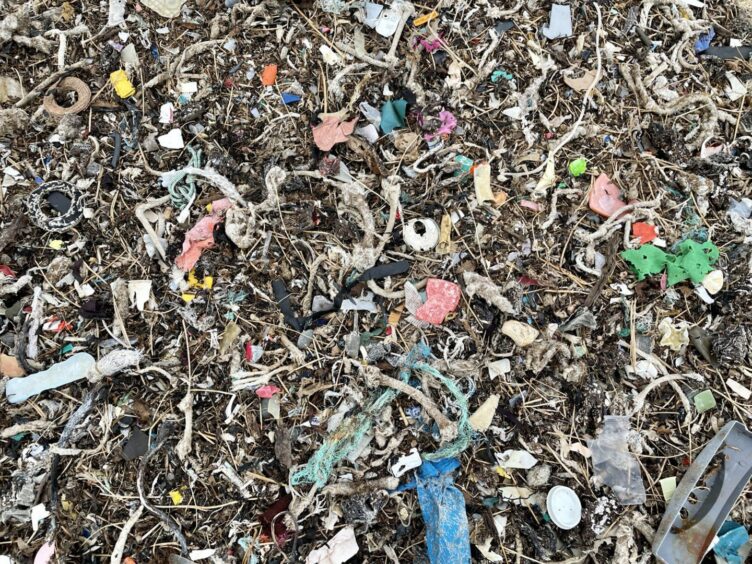More than three tonnes of beach litter was collected in just three hours by a group of oil and gas workers who tackled one of the north-east’s most polluted beaches this week.
From car tyres and plastic bottles to broken toys and marine litter, the variety and sheer volume of waste on Cairnbulg Beach in Fraserburgh means it is well known as being one of the worst in the area.
But a 35-strong group of oil workers from Offshore Energies UK ditched their desks and drills for an afternoon to clean up the pebbly stretch of beach for summer.
What was collected at Cairnbulg Beach?
The volunteers were led into action by the East Grampian Coastal Partnership (EGCP) and after just three hours, had collected more than three tonnes of waste.
However as well as just collecting the rubbish, the volunteers were also counting it.
Cairnbulg Beach is so notorious that the EGCP keep tabs on the numbers of certain items found to track if the beach cleans are making a difference.
Blue rubber gloves (which are tossed off the side of fishing boats) are a common sight, and 190 were collected on this particular clean-up.
It might seem like a lot, but as Ian Hay from the EGCP says, “it’s a big improvement on the 557 gloves we collected last time we were here.
“The same can’t be said for oil filters sadly, which also come from fishing boats, as we found 93 filters this time compared to 56 previously.”
Fantastic effort yesterday from a team of #volunteers including 🐕helpers from @OEUK_ removing THREE TONNES of #litter from Cairnbulg #beach #Aberdeenshire #communityaction #EGCP #TTPT pic.twitter.com/0bIk3wo3dp
— Turning the Plastic Tide (@TTPTnortheast) June 24, 2022
The group were also surveying the beach for egg cases from flapper skate – flat diamond-shaped fish who are members of the shark family.
These huge fish can grow to be three meters across and are critically endangered, with Scotland being one of their last strongholds in the world.
“It’s an interesting comparison to be finding these egg cases from a critically endangered species right next to, well, oil filters and other rubbish,” Ian said.
Hope for a future where beach cleaning won’t be necessary
Despite the bleak picture, Ian is quietly hopeful that things are improving at Cairnbulg.
“I first heard about this beach about 18 years ago,” he said. “We started out doing small cleans here and there and eventually it grew to a big scale like this most recent clean up.
“Now Fraserburgh harbour lend us a Bobcat (small digger) for hauling out big items and Aberdeenshire council provides a skip to take away the rubbish.”
Cairnbulg Beach is what is known as a sink site where rubbish is moved by the current and washes up on the beach, creating a natural repository for waste.
“In a way, it’s handy because we can come here and get most of the waste from the whole area rather than it being spread out over miles and miles of coastline,” said Ian.
“The bad side is, if you don’t get it off the beach then it will get broken down into smaller and smaller pieces that eventually become microplastics.”
When he first started tackling this beach, it was full of oil drums washing up from the North Sea.
But now these are rarely spotted here and Ian is crossing his fingers it will soon be the same story for rubber gloves, oil filters and other marine waste.




Conversation